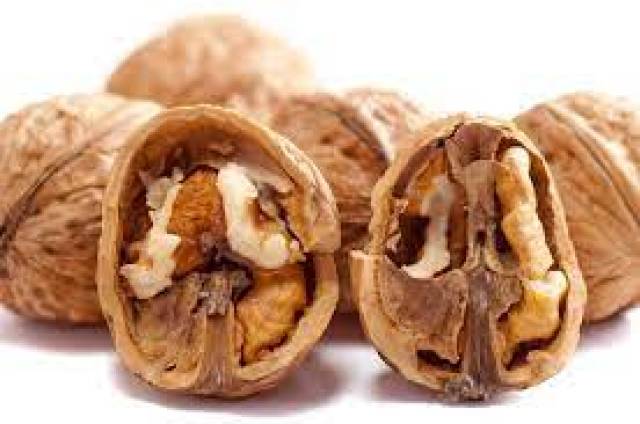Walnuts are rounded, single-seeded stone fruits of the walnut tree commonly used for the meat after fully ripening. Following full ripening, the removal of the husk reveals the wrinkly walnut shell, which is usually commercially found in two segments (three or four-segment shells can also form). During the ripening process, the husk will become brittle and the shell hard. The shell encloses the kernel or meat, which is usually made up of two halves separated by a partition. The seed kernels – commonly available as shelled walnuts – are enclosed in a brown seed coat which contains antioxidants. The antioxidants protect the oil-rich seed from atmospheric oxygen, thereby preventing rancidity.
Walnuts, like other tree nuts, must be processed and stored properly. Poor storage makes walnuts susceptible to insect and fungal mold infestations; the latter produces aflatoxin – a potent carcinogen. A mold-infested walnut batch should be entirely discarded.
Walnut meats are available in two forms; shelled or de-shelled. The meats may be whole, halved, or in smaller portions due to processing. All walnuts can be eaten on their own or as part of a mix such as muesli, or as an ingredient of a dish. Walnuts are often candied, or pickled. Pickled walnuts that are the whole fruit can be savory or sweet depending on the preserving solution. Walnut butters can be homemade or purchased in both raw and roasted forms.
Walnuts may be used as an ingredient in other foodstuffs. Walnut is the main ingredient in baklava, Circassian chicken, chicken in walnut sauce, and poultry or meat ball stew from Iranian cuisine. Walnuts are also popular as ice cream toppings, and walnut pieces are used as a garnish on some foods.



 Descargar Google Chrome
Descargar Google Chrome Descargar Mozilla Firefox
Descargar Mozilla Firefox Descargar Opera
Descargar Opera